Recent Blog Posts
Christmas Week
In my opinion, there is no convenient time to leave the country and move across the world. No time works well into anyone's schedule, no time is easier than another. Packing, getting bureaucratic information together, and organizing state-side affairs is never an easy process. But leaving at this time of year carries with it the added pressure of the holidays. Truthfully, there was no other time that we could possibly leave other than now, it is just how our schedules worked out. But if I could choose, I wouldn't want to leave during the holiday season.
This week is Christmas week, and each interaction with family and friends will have that odd note of finality to it, with us and them knowing that this may be the last time we'll see each other for probably 14 months. No one said it would be easy, and in my opinion if it is easy then my personal relationships are not that strong.
So it will be tough to say goodbye to family and friends after all of our holiday parties and get togethers because I know that it will be a while before we see them again. But I will also be smiling, because I know that we are about to go on the single greatest adventure we've ever experienced, and I know that, even though they may not say it, our loved ones are excited too.
Life in Korea: winter - what are you waiting for?
Korea is quick to mention its four distinct seasons – indeed, 겨울 (gyeo-ul, or winter) is typically cold, dry, and surprisingly beautiful. Although winter isn’t the prime season for tourists, there’s plenty of things to see and do during Korea’s winter.
Several winter festivals help the locals enjoy the weather – the 평창송어축제 (Pyeong-chang song-eo chuk-je, or the Pyeongchang Trout Festival runs through February 6, 2011, while the 화천산천어축제 (Hwa-cheon san-cheon-eo chuk-je, or Hwacheon Trout Ice Festival) lasts from January 8-30, 2011. Both festivals offer the chance to go ice fishing, bare-hand ice fishing, and an opportunity to ride an ATV on the frozen water. Either way, you’ll be heading to 강원도 (Gang-won-do) east of Seoul to arrive.
One traditional winter Korean activity involves the 나무 썰매 (na-mu sseol-mae), or wooden sled. Imagine taking the blades from a pair of ice skates and attaching them to a wooden platform about two feet square. Next, sit down cross-legged and use a couple sticks with nails poking out the bottom to navigate on the ice. Use the sticks to propel yourself and your body weight to turn, and keep your center of gravity over the sled. With a little trial-and-error, you'll figure it out.
Your more typical plastic or rubber tube sleds can be found at many sledding hills around Seoul – for a list, check out this list provided by Korea’s official tourism website.
Couples will find plenty of opportunities to go ice skating around Seoul – while the large ice skating rink inside Lotte World is open year-round, an outdoor ice-skating rink opens during the winter months in downtown Seoul. For more information, check out http://seoulskate.or.kr/. If you’d rather try out skiing or snowboarding, there are plenty of places to get active – check out Yongpyeong Resort or Vivaldi Park in 강원도 (Gang-won-do).
One thing I’ll be doing this winter is relaxing in an open-air spa. Unlike your average 찜질방 (jjim-jil-bang), these open-air spas offer hot water, supposed healing powers, and a gorgeous outdoor view. One of the first Korean open-air spas is called Ocean Castle Aqua World, and can be found in 충청남도 (Chung-cheong-nam-do), a couple hours south of Seoul. If needing to stay closer to Seoul, some of Seoul’s finest (and most expensive) hotels feature excellent spa facilities.
For a couple schedules of winter festivals, check out Visit Korea's winter festival page, or take a peek at fellow blogger Discovering Korea.
Readers in Korea: what are you doing for Christmas vacation? Any plans for getting out of town, or just settle in and watch the Yule log burn on YouTube?
This post was originally published on my blog,Chris in South Korea. If you are reading this on another website and there is no linkback or credit given, you are reading an UNAUTHORIZED FEED.
The Ovenless Christmas Guide

Ideas for an Oven-less Christmas.
If you are like me, you are used to the tradition of 12 days of cookies. (Or should I say 12 pounds of Christmas?) A tradition of cookie exchanges, gifted tins full of homemade candies, and trays of beckoning sweet treats sitting around during the Holidays. Without an oven, this can be rather depressing as you approach Christmas. But… it does NOT have to be that way. Let me introduce you to some of your NEW FAVORITES for the Holidays! ;)
Homemade candies: (Most homemade candy does not require an oven to begin with, so Google away my friend, Google away!!!)
Truffles: http://ovenlesschef.blogspot.com/2010/12/peanut-butter-pretzel-truffles.html
Cake Truffles: http://allrecipes.com/Recipe/Cake-Balls/Detail.aspx
Buckeyes: http://ovenlesschef.blogspot.com/2010/04/buckeyes-candies.html
Chocolate Bark: http://allrecipes.com/Recipe/Ghirardelli-Chocolate-Almond-Berry-Bark/Detail.aspx
Brigadeiro: http://ovenlesschef.blogspot.com/2010/12/brigadeiro-brazilian-caramel-like.html
Fudge: http://allrecipes.com//Recipe/easiest-peanut-butter-fudge/Detail.aspx
Peanut Brittle: http://allrecipes.com/Recipe/Microwave-Oven-Peanut-Brittle/Detail.aspx
Then there’s the Dunking category… Let’s face it, just about anything is good dunked in Chocolate.
Peppero: http://thepioneerwoman.com/cooking/2009/11/quick-and-easy-crispy-chocolate-almond-sticks/
Zec “cookies”: http://ovenlesschef.blogspot.com/2010/12/dipped-pb-ritz-cookies.html
Chocolate covered pretzels: http://allrecipes.com/Recipe/Chocolate-Pretzels/Detail.aspx Use a microwave... :)
Chocolate covered Potato chips: http://allrecipes.com/Recipe/Chocolate-Covered-Potato-Chips/Detail.aspx
Use your imagination!
Then of course, there are cookies. What cookies can you make without an oven?
Chocolate Chip Cookie: http://ovenlesschef.blogspot.com/2010/12/choc-chip-cookies-ovenless-style.html
No bake cookies: http://ovenlesschef.blogspot.com/2010/04/no-bake-cookies.html
Peanut Butter Chocolate Chip: http://www.bakedperfection.com/2009/11/cookie-dough-truffles-and-my-first-give.html
No bake pb cookies: http://allrecipes.com//Recipe/no-bake-peanut-butter-cookies-iii/Detail.aspx
We must not forget the breads… make any version of Quick bread in your steamer.
Zucchini, Banana, Persimmon, Chocolate, Oatmeal, Pumpkin… you name it!
http://ovenlesschef.blogspot.com/search/label/2%20In%20a%20Steamer
Hopefully this perks you up and gets you in the mood! Oh… and to go with your holiday treats, you might as well make yourself a batch of eggnog! ;)
http://ovenlesschef.blogspot.com/2010/12/homemade-eggnog.html
Merry CHRISTmas and a Happy New Year!
~The Ovenless Chef
Weddings in Korea
For most people, there are two packages to choose from: hotel ceremonies and wedding hall ceremonies. Hotel ceremonies are usually longer, more lavish and have an extended guest list, while wedding halls are purpose-built facilities for more high-throughput events. Whatever the size of your budget and patience, Korea has a package that's right for you.
Fruit is much more delicious when it is wrapped! Just kidding, I...
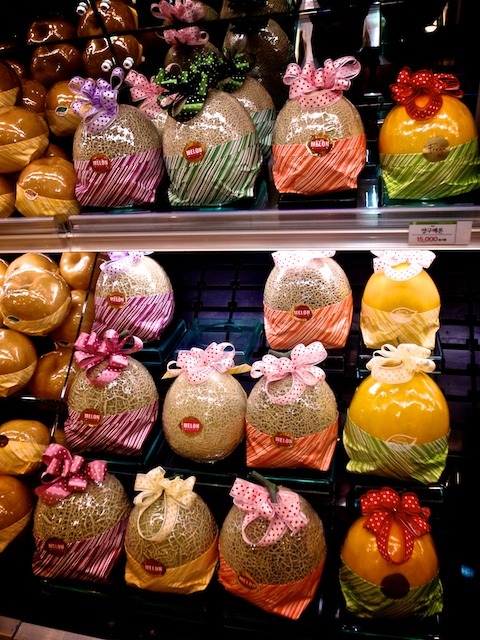
Fruit is much more delicious when it is wrapped! Just kidding, I have no idea, because I’m allergic to melons. Sure is intriguing though.
By the way, I booked tickets to Hong Kong for Lunar vacation with my girl, Jena. I can’t wait to practice my limited Chinese again. Hazah!
Why War CAN Be the Answer - a response to the Hankyoreh and Lee Jong Seok
Author's note: I get the feeling I'm going to get a lot of comments on this one. I'm not out to be controversial just to be controversial, and I'll freely admit to being out of my field of expertise. I also dislike bringing up the topic with the holidays approaching. With that said, I have an opinion and this is my platform - so here goes nothing.
The recent Hankyoreh article entitled "Why War Cannot Be the Answer" by former Unification Minister Lee Jong Seok is a reminder of how much South Korea supposedly has to lose. After mentioning how "devastated" North Korea has become, Lee asks, "how much more serious a situation South Korea would face, developed as it is in all directions, were a single North Korean shell to fall in Gyeonggi Province?"
There would almost certainly be loss of property, and possibly loss of life depending on where in Gyeonggi-do it hits. Remember that while Gyeonggi-do has over 10,000,000 million people living in an area smaller than the size of Connecticut, there's a surprisingly large amount of undeveloped land and mountains. Assume North Korea's targeting system is accurate, and that fear does become more real.
But does that fear necessarily damage or paralyze the economy? In the days following the Yeonpyeong-do bombing, the KOSPI did not - repeat, not - take a beating:
Source: screenshot from Bloomberg.com showing 3 month data of the KOSPI.
Ups and downs just like any other stock market. Even though the attacks happened after the stock market day closed, there was no big dropoff the next day. Were there some genuine concern of North Korea in the South Korean financial world, there would almost certainly be some sign found here. Instead, the KOSPI is back above 2,000 - perhaps the Dow Jones equivalent of the 10,000 milestone - and remains there even now.
Another quote from the Hankyreh article:
We often see reports about how key figures in the Lee administration believe there is a strong chance the North Korean regime will soon collapse due to its vulnerability. These predictions have generated a lot of controversy. But if the administration's diagnosis is correct, it makes even less sense that it would be willing to opt for war against a system that is soon to fail, when war means that South Korea could well be destroyed along with it.The South Korean government has been predicting the collapse of the North Korean government for decades. Each and every time, that prediction has been proved wrong. Unless there is some reason to believe that this prediction is somehow different, I find little reason to believe in the government that cries "Collapse!", just as people stop listening to the boy that cried wolf. Perhaps this is the first prediction based on actual evidence - if so, let's see it.
Furthermore, there is no reason to believe a North Korean collapse would be orderly or kept within its borders. At best, South Korea and China would struggle to keep millions or tens of millions of people from attempting to emigrate. At worst, someone bent on using those nuclear missiles might use the government's collapse as an opportunity to take control of - or even fire - the missiles in question. It may not take a war to collapse a nation supposedly collapsing on its own, but a swift strike on the people that hold the power would at least be an element in our control.
Speaking of nuclear missiles, there seems no one in charge that understands one simple thing: North Korea will never give up that nuclear technology. I picture in my head a standoff, where two people are holding a gun at each other's heads:

Source
All things being equal, giving something up to the other guy or putting your gun down puts you at a disadvantage. And what a disadvantage North Korea would have. With exception of a couple outliers, the rest of the world has shown it can effectively cut off North Korea from the outside world. What few outside products that make it in have to be smuggled in, under penalty of a prison camp or death.
There will not be a peaceful unification between North and South Korea. I'd like to be proven wrong, but the odds are stacked against that happening for more reasons than I can elaborate.
One final quote from the article:
The reason we are showing restraint is because of the disaster a war would bring. It would instantaneously bring down the economy we have worked so hard to build since the armistice and lead the Korean people once again onto the road to ruin. This is why the fuse must not be lit recklessly.On this point, I'll partially agree - war might bring a disaster. I could break out any number of sayings to serve as faux proverbs; 'you can't make an omelet without breaking an egg' comes to mind immediately. It's going to end badly any way you slice it, so why not end it in a manner that's more advantageous to you in the long-term?
This current Korean economy was created through the hard work and never-give-up attitude of multiple generations. Those traits certainly haven't gone anywhere, have they? If South Koreans are once again called to pull themselves up by their bootstraps, could they not recover in much the same way New Yorkers did in the days following 9/11? They might have to pull themselves away from Starcraft and stop taking pictures of their mocha lattes.
Shock and horror!
Kids might have to cut back from going to four different private schools to three because one of the buildings was damaged. Perhaps over-elaborate productions of big-budget, borderline-anorexic, barely dressed teenagers singing what they call music might have to stop for awhile. If that is the price of peace on the Korean peninsula, I welcome it.
Finally, the author quotes from the Art of War, the timeless classic by Sun Tzu. I read it in college - twice, one out of personal interest and once for class - and have a copy sitting on my bookshelf. Like the Bible and Koran, the book has an unfortunate tendency to be used in whatever way a write would like (as I am about to do myself, admittedly). I refer to an online version found on MIT's website:
Section 2, 6: There is no instance of a country having benefited from prolonged warfare.Having been at war (even if at a technical level) for 60+ years has shown little benefit to Korea's development; it has hurt the long-term investment opportunities coming from overseas.
Section 8, 11: The art of war teaches us to rely not on the likelihood of the enemy's not coming, but on our own readiness to receive him; not on the chance of his not attacking, but rather on the fact that we have made our position unassailable.If South Korea's holding back because it's not ready, God help us all. The response from Yeonpyeong-do raises enough questions to justify a more extensive audit.
Section 9, 26. Peace proposals unaccompanied by a sworn covenant indicate a plot.Two words: Wolf Blitzer. Let the history books serve as record of peace proposals offered - from either side - and plots abound.
Taking care of the North Korea problem ensures several things: long-term peace / stability in the East Asian area, increased foreign direct investment, and any number of benefits gained from adding land mass to Dae Han Min Guk.
Easy to do? No. Cheap? Heck no. Likely to be a long-term process that takes years to settle down? Yes. Let's not get any misconceptions about the aftermath, but we'd have to deal with that anyway. Let's do it on our timetable, not North Korea's.
 © Chris Backe - 2010
© Chris Backe - 2010This post was originally published on my blog,Chris in South Korea. If you are reading this on another website and there is no linkback or credit given, you are reading an UNAUTHORIZED FEED.
Once a month at my school, we celebrate with a birthday party....
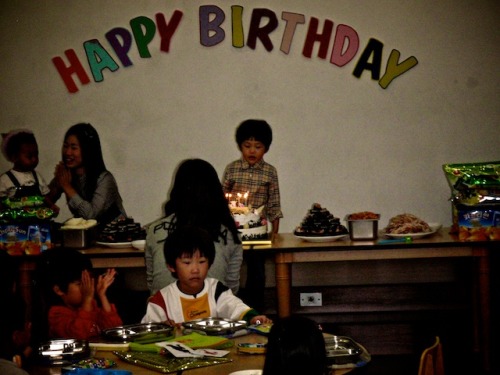
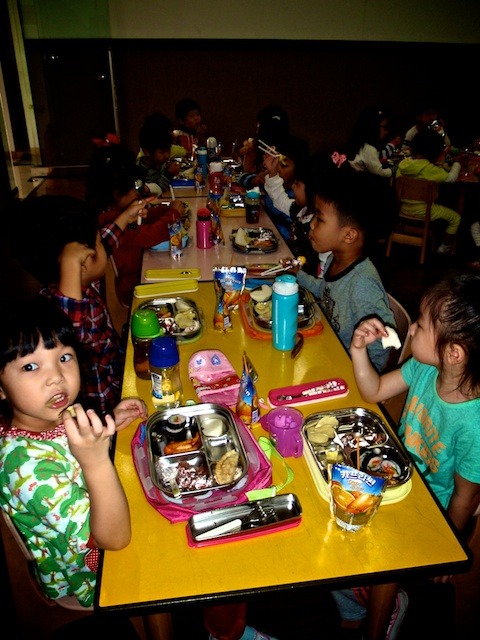
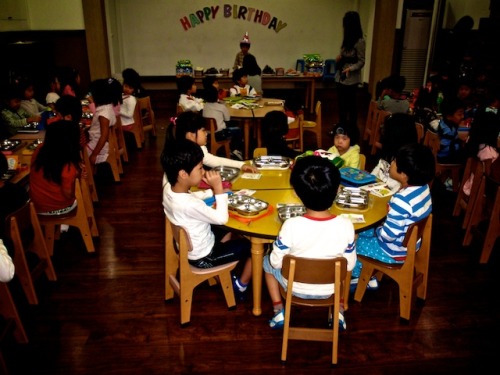
Once a month at my school, we celebrate with a birthday party. We eat kimbop, mandu and cake. The kids even get to indulge with a bit of orange juice. It’s awesome. Even though it cuts into my two hour+ lunch break, I’m okay with it. Because I get to eat cake. Yum.
Lupin (루팡) by KARA (카라): Lyrics, Translation, & Explanation
 ( Source )
( Source )
Well, this is embarrassing.
Now as you’re probably aware, I simply love this song, and must have listened to it well over a hundred times. And the music video is amazing too.
But now that I’ve actually studied the lyrics? Hell, but for the word “2010″ at the beginning, I actually had no idea that so much of the song was in English.
On the positive side though, that’s given me a renewed appreciation for the difficulties many Koreans have in realizing that a (frustrated) foreigner is actually speaking Korean to them, albeit in a strange accent. And I don’t mind how nonsensical all the English in the song is either, as that’s quite normal for K-pop.
But unfortunately the Korean too seems literally thrown together in many places, which made it difficult for even my Korean wife to understand. And as you’ll soon see, the small amount of it below belies how much time and effort went into translating it.
And knowing all that about the song now? To be frank, it’s made it lose just a bit of its magic for me.
Lest the same happen to you, read on at your peril!
The first part obviously doesn’t need an explanation, although I’d be interested in learning what “la couture” means exactly:
Sing it with me now
2010, We bringing new love to the floor
Rocking what’s real la couture
We opening new doors new show new world new control
Can you keep up oh!
Hallo! Hallo! Hallo! Hallo! Hallo!
Hallo! Hallo! Hallo! Hallo! Hallo!
Hallo! Hallo! Hallo! Hallo! Hallo! Catch!
Hallo! Hallo! Catch! Catch! Hallo! Hallo!
 ( Source )
( Source )
겁먹지마 니 심장소리가 들켜 (쉿!)
뒤에 서서 침착하게 지켜봐봐
탐난다고 서두르단 결국 Game set
유연하게 행동해봐 As usual it’s mine
Hide your fear, your heartbeat will be detected (shh!)
Stand behind [me], calmly try to keep watch
Even if it is desirable, if you hurry in the end Game set
Try to be flexible As usual it’s mine
 ( Source )
( Source )
Most of that was pretty basic, provided you know that adding “보다” to the end of a verb, and conjugated in banmal (반말; informal speech) as “봐”, simply means try to do the verb. At the end of line 2, it’s added to “지켜보다” (to keep watch), hence the “지켜봐봐”.
But I don’t understand line 3 at all: “탐난다” means “be desirable” (not “burn” as given everywhere else: that’s “타다”), which is simple enough, but then it’s given as indirect speech, as indicated by the “~ㄴ다고” ending. But who said what is desirable? And what’s the connection to “서두르다” (hurry) after that for that matter, and while we’re at it what’s the “ㄴ” doing at the end of that too?
To make sense of it then, I suggested to my wife that possibly something like “탐나더라도” was intended, the “더라더” being a grammar pattern meaning “no matter how much, even though, I don’t care if”, and so on, and she concurred.
Finally, line 4 is literally “flexibly act/behave-try-to”.
 ( Source )
( Source )
Next, there’s the main chorus. As you can see though, there’s just one Korean line in it, and its simply “Go/climb high, try to grab/take all the world”:
(Eo eo eo) It’s mine
(Eo eo eo) This is mine
(Eo eo eo) This is mine
(Eo eo eo)
높이 올라 가 (Ye Ye Ye) 세상을 다 가져봐 (Ye Ye Ye)
Never back it up Back it it up (it it up)
Never turn it up Turn it it up (it it up)
 ( Source )
( Source )
Hallo! Hallo! Hallo! Hallo! Hallo! Catch!
Hallo! Hallo! Catch! Catch! Hallo! Hallo!
한눈팔면 기회조차 뺏겨버려 (쉿!)
누구보다 한발 먼저 다가가 봐
남들처럼 티내다간 결국 Game set
유연하게 행동해봐 As usual it’s mine
If you so much as glance away, you’ll throw away your chance (shh!)
You should take the first step and try to approach
If you have the air of everyone else in the end Game set
Try to be flexible As usual it’s mine
 ( Source )
( Source )
In Line 1 (of the Korean), “한눈” is literally “one eye”, and “팔다” sell, but hopefully it’s not too much of a jump to see that “selling one eye” means “look (or glance) away”, especially as the listener was already told to keep watch in the last verse.
Then, next to “기회” (chance, opportunity) there is the grammar pattern “조차”, which basically means “even, to boot, in addition”, as in “목이 아파서 밥은커녕 물한 잔조차 마실 수 없다” for example, or “My throat is so sore that I can’t even drink a glass of water, let alone eat rice”.
But with the next, “뱃기다” (be dispossessed of) plus the grammar pattern “버리다” added to it, which adds a sense of completely ruining or throwing away something, then in English the “even” seemed a bit awkward. So I came up with “If you so much as glance away, you’ll throw away your chance” instead.
Then line 2 is literally “who than- one step – first – approach try to”, so I think “You should take the first step and try to approach” gets the gist of that. And the “who” (or rather “they”) referred to is the “남들” in line 3, which I originally thought was an abbreviation for men (“남자” plus the plural marker “들”), but it turns out to mean “other people” instead. But note though, that that’s not in the sense that the male is used the default for both genders like in Spanish(?), as they’re different words: the “남” in “남들” has no hanja (Chinese character) root, whereas that for “남자” does, and indeed you’ll often see it – 男 – on doors to toilets and men’s changing rooms and so on (and while we’re on the topic, here’s the one for women {여} too: 女).
Finally, in line 3 “티내다” wasn’t in my electronic dictionary, but “티” can mean “an air”, and pulling a thick print dictionary from my bookcase with more examples of that usage confirmed it.
 ( Source )
( Source )
Next, the chorus is repeated, then you have:
이제 차근차근 걸어나가봐
세상 하나하나 전부 가득 담아봐
특별하길 원하니 네 것이길 바라니
시작해 Uh! Yeah, yeah!!
Now try to step out slowly and carefully
Try to fill in each and every part of the whole world
Do you want to be special? Do you hope it will be yours?
Start Uh! Yeah, yeah!!
 ( Source )
( Source )
First up, in line 1, “차근차근” can mean “scrupulously”, “methodically”, “systematically”, and so on, but the final, more literal meaning of “step by step” seems most appropriate here. But then “Step out step by step” sounds awkward in English though, so I changed it to “slowly and carefully” instead. That does seem to contradict the carpe diem spirit of the song a little unfortunately, but I think that’s the fault of the original Korean!
Then you have “걸어나가다”, which was annoying for me as a beginner (Yet another word for “walk”?? And Koreans complain about learning English!), but is quite easy to understand really. You see, “걷다”, which is irregular and so conjugates as “걸어~”, is your basic “walk”. But then you can have things like “가다” and “오다” added to them, giving “걸어오다” and “걸어가다”, and which simply mean “walk” plus “come” and “go” respectively, or “walk towards [the speaker]” and “walk away from [the speaker]” in English. And with “걸어나가다” in the song, “나가다” simply means “go/step out”, giving “walk out”. Granted, it can also mean “walk towards, approach” according to the dictionary, (and don’t forget that “다가가다” from the last verse means “approach” too!), but “walk out” seems much more appropriate given the context of the previous verses.
Line 2 was very annoying though. Literally, it is “world – one by one – all parts/whole – full – fill/put in try to”, which can probably be translated many different ways (but not one by one as in separate worlds though), and “Try to fill in each and every part of the whole world” was the best I could do.
But that was a doddle compared to line 3. First up, “특별하다” means “to be special”, but then adding “기” at the end changes it to a noun, and then the “ㄹ” makes it the object. So, “specialness”, with the “원하다” being “want” plus the “니” at the end being an informal question form, and usually implying that the speaker places themself slightly higher than the listener – usually determined by age, as explained by Seamus Walsh in his comments to a translation of another song (a belated thanks for those by the way!). Which gives “Do you want specialness”, or “Do you want to be special?”.
Then you have “것이길 바라니”. “바라다” means “desire”, “hope for”, and “look forward to” (you’ll often see the formal form “바랍니다” at the end of signs on the subway and so on), and it includes the “니” form at the end as just explained. But “것이길”? I guess it’s “것” (thing) plus “이다” (to be) plus “기” to make it a noun, then “ㄹ” to make all that an object. So literally “your thing – the act of beingness – hope for”!
And that’s it, but for the 2nd half of the chorus again:
높이 올라 가 (Ye Ye Ye) 세상을 다 가져 봐 (Uh yeah)
Never back it up Back it it up (it it up)
Never turn it up Turn it it up (uh yeah, yeah!!)
As a reward for slogging your way through all that, let me present you with the DJ Amaya vs Groovebot Hard Club Edit, which reminds me a lot of what I used to dance to in clubs 10-15 years ago (wistful sigh):
Originally, this particular KARA fan didn’t like it much. But it rapidly grew on her, and you can see how she felt when it finally finished:
Next week: I Don’t Care by 2NE1.
Filed under: Girl Groups, Korean Music, Song Lyrics & Translations Tagged: 루팡, 카라, Kara, Lupin


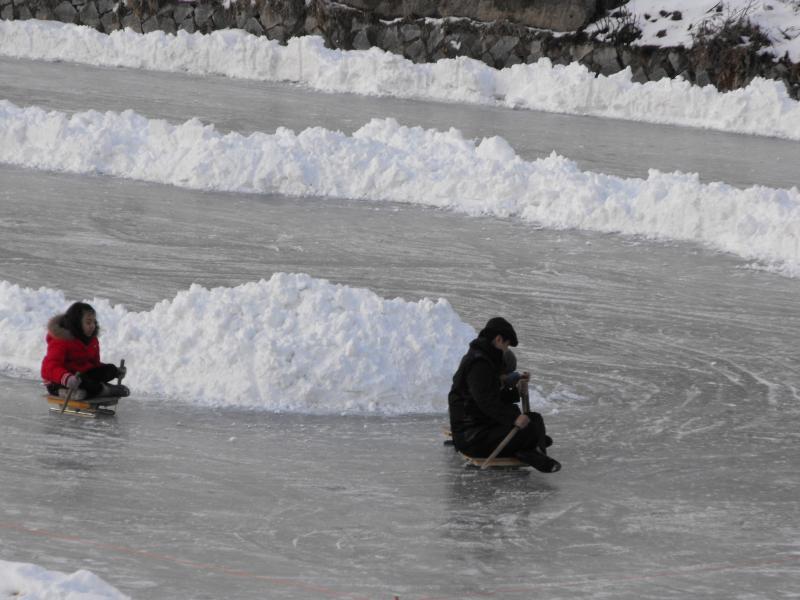


 RSS Feed
RSS Feed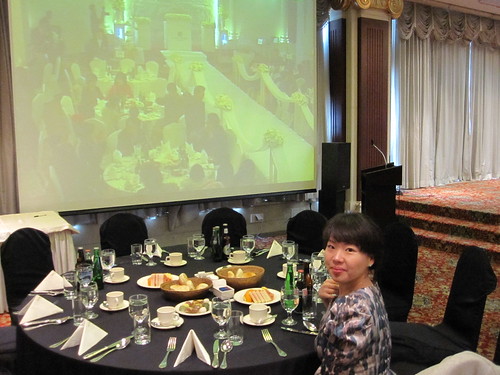
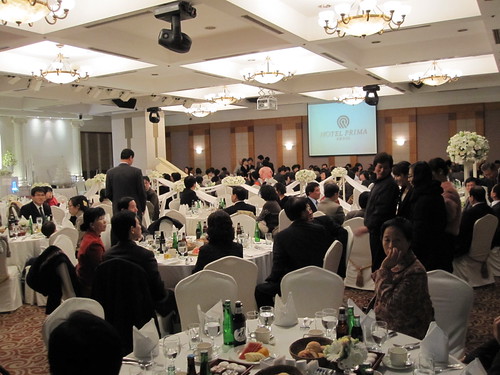
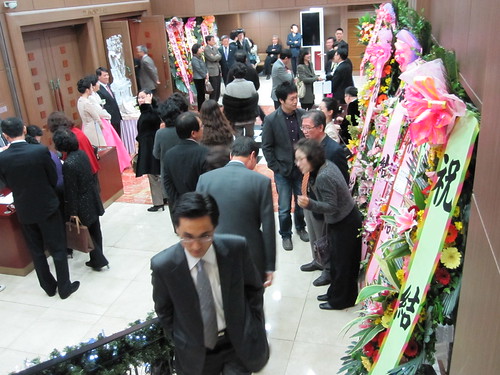
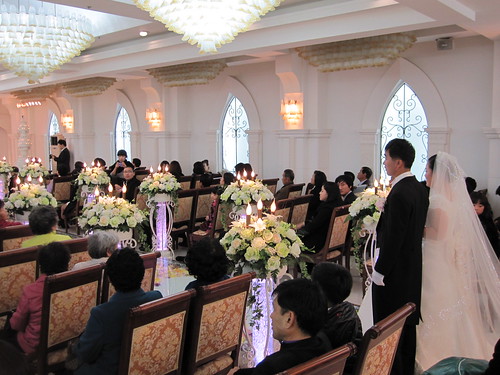
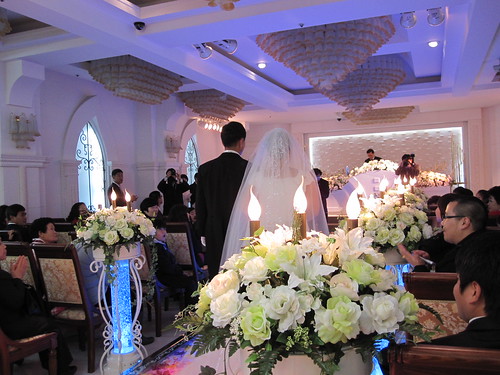






Recent comments